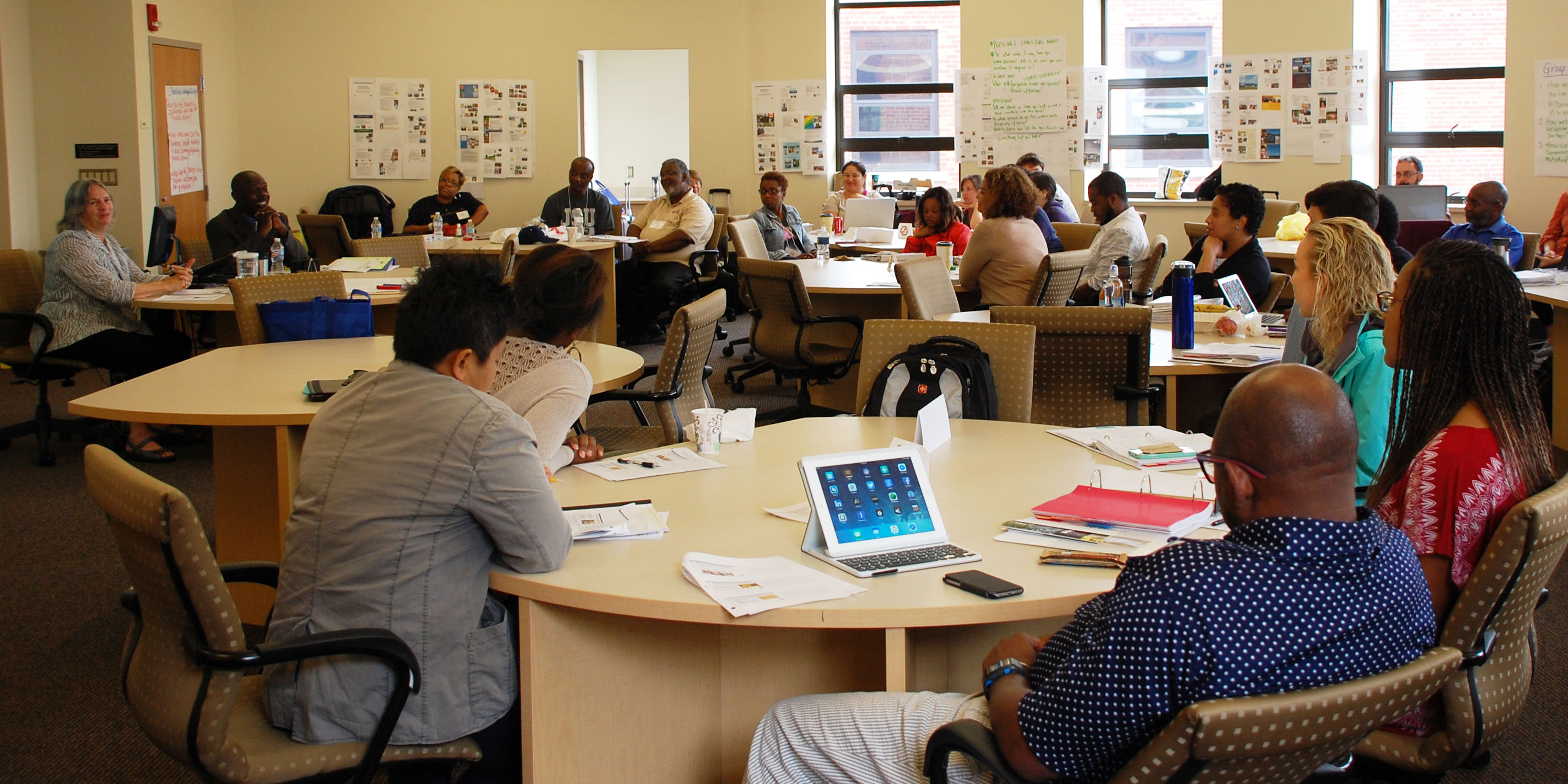| Funding Source | National Institute of Diabetes and Digestive and Kidney Diseases (NIDDK) (2002-2008) |
| Goals & Objectives: | To demonstrate the effectiveness of a social support healthy lifestyle intervention designed to reduce behavioral and clinical risk factors for type 2 diabetes among pregnant and postpartum women. |
| Communities Involved: |
Latino and African American pregnant and postpartum women in southwest and eastside Detroit. |
| Partners: | CHASS, Detroit Department of Health and Wellness Promotion, Friends of Parkside, Harper-Gratiot NSO, Latino Family Services, Michigan Department of Community Health, Southwest Solutions, St. John Health System, UM-Schools of Social Work, Public Health, and Nursing. |
| Intervention: |
Healthy lifestyle intervention (HLI): Culturally and environmentally tailored, English and Spanish language programs conducted by community resident Women's Health Advocates (WHAs) that includes group social support/activity and curriculum-based meetings and home visits and that develop social support, knowledge and skills needed for healthy eating, regular exercise and stress management and healthy pregnancy, childbirth, postpartum maternal and infant development. Healthy pregnancy (control) intervention (HPE): Culturally tailored, English and Spanish language pregnancy, childbirth, postpartum and stress management education; usual care materials; conducted by community partner staff in both communities. |
| Outcome Indicators: |
Primary outcomes: increased physical activity, fruit, vegetable and fiber consumption; decreased simple sugar, trans and saturated fat consumption. Secondary outcomes: Improved anthropometric, metabolic, social support and psychological measures; positive changes in beliefs and attitudes regarding weight, eating and exercise. Process outcomes: program fidelity, adequate recruitment and retention; participant, host site, WHA and Steering Committee satisfaction; replicable materials and methods. |
| Methods & Analyses: | Longitudinal comparisons of HLI vs. HPE at end of pregnancy intervention and 6 week postpartum intervention phases controlling for demographic and potential confounding factors, and selected pre-post analyses of outcomes assessed by questionnaires, physical measurements, blood assays and pedometer steps. Process Evaluation measures assessed by observations, questionnaires and focus groups with quantitative and qualitative data collection and analyses. |
| Results: | Among Latinas, almost 90% retention through pregnancy and more than 80% retention through 6 weeks postpartum; high participant, WHA and host site satisfaction. Significantly increased vegetable consumption in HLI group; other analyses ongoing. |











![[USE THIS] 2017 DWEJ logo_Horizontal](/cache/widgetkit/gallery/44/[USE THIS] 2017 DWEJ logo_Horizontal-64638c1e16.png)
